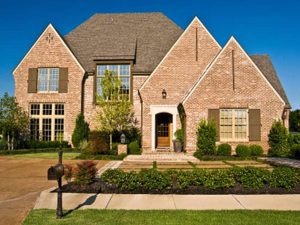Tips For Choosing A Perfect Lot for A Custom Home
 They always say you can change the floorplan or astehtics of a home, but you cannot change the location. Location is very important when it comes to residential real estate. Different homes will also fit on different lots.
They always say you can change the floorplan or astehtics of a home, but you cannot change the location. Location is very important when it comes to residential real estate. Different homes will also fit on different lots.
“In general, a custom home is larger, and this requires a larger lot,” Michelle Grove-Reiland, real estate broker, said. “Plus, the lot must be conducive to the design of the home. For example, if the homeowner wants to be able to walk out to a lower level, this would require a slope that would accommodate this.”
“An additional consideration for choosing a lot is the type of soil that is underneath its foundation. If the property has a high water level and the homeowner wants a walk-out lower level, this may not be possible. It may require a crawl-space because of the high water level.”
“Another factor to consider when choosing a lot for a custom home involves the orientation of the home on the lot. Does the position of the home on the lot afford the homeowner the view corridors that he or she is looking for?”
“Finally, a critical consideration involves any architectural committee design guidelines or covenants that restrict where one might build on a lot. There may also be city ordinances that prevent a homeowner from building the type of structure they want. These are critical questions to answer before buying a lot for a custom home.”
Soil Composition and Brick Construction
The foundation of a home is a big important part of the construction make up of the house. If your home’s exterior is constructed of brick, then your foundation must be able to hold the weight. Brick homes are heavier and sturdier than most of the homes that have wood or synthetic material exteriors.
Before Buying a Lot
Buying a lot is crucial and you must do your due diligence when evaluating a lot. A must is to do a soil report, as a lot of sellers allow for a soil contingency in the contract. In some parts of the country a slope analysis must be conducted. Hill sites can be considered geo-hazard areas. This means when they get wet from the rain there can be slumping of the gound which in turn can affect the home’s construction.
The Cost and Availability of Land for Homes Vary
“Typically, custom homeowners are looking for at least one-half acre or larger for their lot. The trend among custom home buyers is for larger (greater than one acre) lots. I believe this is the result of people wanting to change their lifestyle to one with more privacy and less noise.” Grove-Reiland said.
Just remember the standard rule is the cost of the lost should not go over 20% of the total budget. This is dictated by the lender you will use for your mortgage.
A Lot’s Size Versus Square Footage of a Home?
“There is no real standard for size of the lot size based on square footage of the home,” Cieplik said. “If a client wants us to build a 17,000 square foot home, we take into consideration the covenants and other requirements, such as a homeowner’s association, and recommend the appropriate lot size. As we have noted earlier, our lot sizes typically run from one-half acre to five acres, and we have recently built a beautiful home on 40 acres!”
“Over time, the availability of land – which is constantly being reduced – will dictate the size of the homes that can be built. However, custom home buyers want large lots for their back and front yards and for entertaining. They love nature and they want to have that view of the mountains or the trees.”
If you are condisering building a brick home, remember to do your reasearch on the size and cost of the lot you desire. A Realtor can help you with the whole process.
